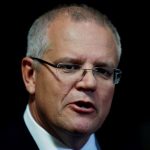Investing in Australia’s future
Discussing Universities Australia’s A Smarter Australia policy statement, University of Melbourne Vice-Chancellor, Professor Glyn Davis explains why higher education is key to the nation’s economic future.
In 1970, when Julia Gillard was in primary school and Tony Abbott starting his secondary education, just three per cent of adult Australians held a university degree.
Now we are tracking toward a national target of 40 per cent, with more than a million and a quarter people enrolled in Australian universities this year, on their way to qualifications.
In just two generations, going to university has become a familiar part of life’s journey. Australians hope to be educated and affluent, moving beyond the school-leaving certificate to embrace the lecture and the tutorial, the attitudes and mores of a secure middle class.
Australians understand our national prosperity is more than resources. It requires new skills made possible through higher education.
This profound change has encouraged a new Australian outlook. As Universities Australia research reveals, an astonishing 88 per cent of Australians will encourage their children, and young people they know, to attend university.
Accordingly, it is time for political leaders to recognise the asset for this nation in the 37 public and two private universities represented by Universities Australia.
We aim to make higher education core to the national vision for our economic future. Through the ideas outlined in Universities Australia’s A Smarter Australia policy statement, an already strong university system can become truly great.
A Smarter Australia advocates:
- continued growth in Australians accessing higher education by maintaining the demand-driven system;
- supporting global engagement through expanding the export of international education;
- sustaining Australia’s research effort through support for research infrastructure, and an expanded research workforce;
- increasing investment in teaching over the next five years; and
- reducing the regulatory burden on universities.
Every qualified Australian should have the chance to go to university.
Not all will accept the challenge, but high levels of participation in universities are crucial for national success. Much of the necessary machinery to achieve these national goals is already in place. The demand-driven system provides places for all Australians, and income-contingent loans ensure cost is no barrier to taking up the opportunity.
Yet more can be done, including improved links between vocational education and university study, targeted income support, and better student housing.
Our second goal is a globally engaged university sector. Australian universities have now educated two and half million international graduates and we can build further on this success. By adopting a five-year strategy, we can more than double international student numbers to more than 700,000 a year by 2030.
Our present $14.76 billion a year education export industry will grow even larger, bringing benefits to every Australian.
The third goal of a smarter Australia is a powerful research and innovation system. Universities across the country are working hard to improve links to business and enterprise. But we need a national research infrastructure program, an expanded research workforce and long-term commitments to the Australian Research Council and the National Health and Medical Research Council.
A further important goal of the Universities Australia policy statement is public investment and smarter regulation.
Let me be clear – there has been a notable and welcome increase in public funding over recent years. Schemes such as the Education Investment Fund are without recent precedent in Australia, but spending on teaching remains low.
Twice in the last five years government-appointed review panels have identified specific shortfalls in funding for university teaching. In terms of GDP, Australia now ranks just 25th out of 29 advanced economies for public investment in higher education.
Better-funded institutions in Australia’s region are pressing hard. Now is the right time to act.
Ultimately, to gain political traction, the policy argument about universities depends on the public conversation. To quote Abraham Lincoln, “With public sentiment, nothing can fail. Without it, nothing can succeed.”
Every participant in Open Forum should be part of this discussion. Help spread the message – in a world where resources run out, there is no smarter investment than a great university system for Australia.
Professor Glyn Davis has been Vice-Chancellor and Principal of the University of Melbourne since January 2005. Glyn holds first class honours from the University of New South Wales and a Doctorate of Philosophy from the Australian National University. Alongside an academic career starting in 1985 at Griffith University, Glyn served as Queensland’s most senior public servant, Director-General of the Department of Premier and Cabinet, before returning to Griffith as Vice-Chancellor in early 2002. He publishes on public policy, and is co-author of The Australian Policy Handbook, now in its fourth edition.














